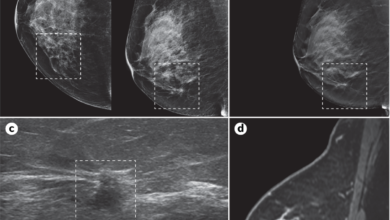The Vital Role of Doctors in Modern Society

In the intricate fabric of modern society, few professions stand as pivotal as that of doctors. They are not merely professionals treating ailments; they are the custodians of health, guardians of life, and beacons of hope in times of distress. From the serene chambers of primary care clinics to the bustling emergency rooms of hospitals, doctors play a multifaceted role that extends far beyond the realm of medicine. They embody compassion, knowledge, and resilience, making their profession not just a career choice but a calling.
A Journey of Dedication and Expertise
The journey to becoming a doctor is a testament to dedication and perseverance. It begins with years of rigorous education, where aspiring doctors immerse themselves in the sciences, anatomy, pharmacology, and patient care. Medical school, often followed by residencies and fellowships, sharpens their skills and hones their ability to diagnose, treat, and heal.
Beyond the academic rigor, the journey of a doctor is marked by personal sacrifice and a commitment to lifelong learning. The demands of the profession can be intense, requiring long hours, overnight shifts, and the ability to make split-second decisions that can mean the difference between life and death. Yet, through it all, doctors remain steadfast in their pursuit of excellence, driven by a profound sense of duty to their patients and society.
Healers and Innovators
Doctors are not only healers but also innovators at the forefront of medical advancements. They are constantly pushing the boundaries of what is possible, embracing new technologies, procedures, and treatments to improve patient outcomes. From pioneering surgeries to groundbreaking research, doctors are catalysts for change in the medical landscape, driving progress and shaping the future of healthcare.
In addition to their clinical expertise, doctors serve as advocates for public health and wellness. They educate communities about preventive care, vaccinations, and healthy lifestyles, working tirelessly to combat diseases before they take root. Through their advocacy and outreach efforts, doctors empower individuals to take charge of their health, promoting a proactive approach to well-being that extends beyond the confines of the hospital.

Compassion in Action
At the heart of the doctor-patient relationship lies compassion—a fundamental virtue that distinguishes exemplary doctors. Beyond diagnosing illnesses and prescribing treatments, doctors offer empathy, understanding, and unwavering support to patients and their families. They navigate complex emotions with grace, offering comfort in times of uncertainty and celebrating victories, no matter how small.
The impact of compassionate care cannot be overstated. It fosters trust, strengthens resilience, and promotes healing on a profound level. Patients who feel heard and cared for by their doctors often experience improved outcomes and a higher quality of life. In essence, compassion is not just a soft skill; it is a cornerstone of effective healthcare delivery that enhances both the patient experience and overall health outcomes.
Challenges and Resilience
Despite their unwavering dedication, doctors face formidable challenges in their daily practice. The pressures of managing heavy caseloads, navigating bureaucratic hurdles, and balancing professional and personal responsibilities can take a toll. Burnout, a significant concern in the medical community, affects many doctors who grapple with the emotional and physical demands of their profession.
Addressing these challenges requires a collective effort from healthcare institutions, policymakers, and society at large. Initiatives aimed at promoting physician well-being, improving work-life balance, and fostering a supportive work environment are crucial steps toward safeguarding the mental and emotional health of doctors. By prioritizing their well-being, we not only honor their contributions but also ensure a sustainable healthcare system capable of meeting the needs of future generations.
The Future of Healthcare
Looking ahead, the role of doctors in society is poised to evolve amid rapid technological advancements and shifting demographic trends. Telemedicine, artificial intelligence, and personalized medicine are reshaping the landscape of healthcare delivery, offering new opportunities and challenges alike. Doctors must adapt to these changes while upholding the core principles of their profession—compassion, integrity, and evidence-based practice.
Moreover, the global COVID-19 pandemic has underscored the resilience and adaptability of doctors in the face of adversity. They have been at the forefront of the pandemic response, risking their own health to care for patients and mitigate the spread of the virus. Their courage and commitment serve as a testament to the indomitable spirit of the medical profession, inspiring hope and solidarity in communities worldwide.

Conclusion
Doctors are the backbone of our healthcare system, embodying the values of compassion, expertise, and resilience. They dedicate their lives to healing the sick, comforting the afflicted, and advancing medical science for the betterment of humanity. As we navigate the complexities of modern healthcare, let us recognize and celebrate the profound impact of doctors on our lives and society as a whole. Their contributions are immeasurable, their sacrifices immense, and their legacy enduring—a testament to the enduring power of compassion and dedication in the pursuit of health and well-being.



